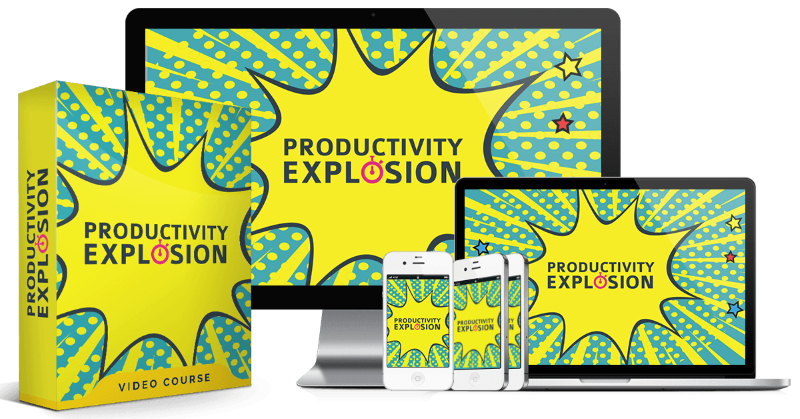
Crafting a personal development plan should be a priority in your life.
This is not surprising, as the mere act of creating, adhering to, and monitoring your plan will push you outside of your comfort zone.
By doing so, you will be able to cultivate your strengths and boost your confidence.
When you document your journey towards self-improvement, you gain a deeper sense of self-awareness.
This newfound awareness enables you to make wise decisions and take deliberate steps towards personal growth and success.
To enhance your personal development plan, consider the following steps.
Step #1. Identify What You Really Want
Defining success is crucial for achieving any goal or objective, when it comes to personal development, requires careful consideration and a comprehending of what success entails, including setting a deadline its attainment.
In order to create a detailed description of your goal you must identify the components that define success and determine when you expect to achieve it based on factors such as your skill level, available resources, and time constraints.
For instance, imagine the goal is to publish a romantic historical novel based on the Irish Potato Famine.
The plan is to have a complete manuscript of 80,000 and 27 chapters ready for publication on January 27th, 2023, at 8 AM through Kindle Direct Publishing.
To accomplish this, the process involves outlining, writing, and editing the rough draft.
The goal is to send the manuscript to a publishing virtual assistant via Dropbox by September 20th, 2022, at 8 AM.
Additionally, it is important to outline all the necessary activities leading up to handing over the manuscript to the virtual assistant, as well as your involvement in subsequent steps.
This approach should be applied to every goal you have, whether they are long-term aspirations or short-term daily objectives.
By doing so, you can ensure that each goal is incorporated into your calendar and schedule, allowing for daily progress towards their achievement.
As you work towards your goals, it is crucial to understand your own identity and aspirations in order to align your current desires with your long-term vision.
To gain clarity on what you truly want, it is helpful to reflect on the following questions for each area of your life:
– What brings you joy?
– What are your fundamental needs?
– What principles, morals, and values do you hold?
– What activities make you lose track of time?
– What energizes you the most?
– If money was not a factor, what would you pursue?
– How would you like to be remembered in your obituary?
Most individuals strive to have a sense of significance and impact in their communities and the lives of others.
Part of achieving this goal involves understanding your own desires and self-worth.
To truly uncover what you want, it is essential to dedicate time to self-discovery and delve deep into your authentic self.
Step #2. Define The Why
In order to refine your personal development plan, it is important to make each growth point more specific and delve deeper into the underlying reasons behind your goals.
By defining your why, you gain clarity, inspiration, and focus for your goals.
It also enables you to let go of the expectations and pressures imposed on you by others throughout your life.
For instance, if your goal is to pursue photography as a passion, but you feel pressured to keep it as a hobby, this conflicting mindset can hinder your progress.
Understanding why you want to pursue photography, such as the happiness and fulfillment it brings you, is a sufficient reason on its own.
Another misconception that may hinder your motivation is the belief that investing money in a hobby is wasteful.
However, if you realize that the photography class you invest in contributes to your self-worth and overall joy in life, isn’t that a valuable return?
By not understanding your why, you may become demotivated due to conflicting thoughts.
For example, if you enjoy art for the experience and pleasure it brings, and you’re good at it, that should be reason enough.
Reconnecting with your why helps clarify your thought process and guides you towards the right answer, preventing such erroneous thinking.
To determine if your goals align with each other, your principles, morals, and values, and if they fulfill your needs, ask yourself the following questions:
- Do these goals complement each other?
- Do they align with my principles, morals, and values?
- Do they fulfill my needs?
- How does success in these goals enhance my life?
- Will they bring me joy?
- Will pursuing these goals hinder my progress in other areas?
- Do any of these goals create roadblocks for other goals?
When setting goals and deciding what to focus on in your life, it’s crucial to understand why you want or need to include each goal.
Leading with your why eliminates the need for constant motivation and instead provides a powerful reason or purpose to inspire you to achieve your goals.
Furthermore, when others understand your reasons, they are more likely to support and assist you.
Your why becomes a reference point for motivating yourself, explaining desired outcomes, and making informed decisions.
By following these guidelines and understanding your why, you can create meaningful goals that resonate with your true desires and aspirations, driving you towards success.
Step #3. List Obstacles You May Face
One way to avoid setbacks is to account for potential obstacles you face as you embark on any goal in your life.
If you acknowledge roadblocks, you can either remove them or transform them into growth opportunities.
For example, if you have a weakness that might prevent you from succeeding, how can you mitigate it?
For instance, your tendency to listen to your negative self-talk or the cognitive dissonance you feel when you try to make a change may require deep mind work to overcome.
However, the more you note obstacles, the more you can plan to circumvent them.
Make a list of possible obstacles, starting with ordinary everyday things.
While you may not know every single obstacle you will face, acknowledging and planning for the known ones will assist you with last minute solutions if the unknown and unexpected happens.
Some blocks will be easy to note, but some will be less obvious.
Obstacles Examples:
- Fear
- Pride
- Denial
- Defensiveness
- Lack Accountability
- No Self-Discipline
- No Motivation
- No Goals
- Unclear Goals
- Lack of Values
- No Principles
- Not Sure of Morality
- Blame
- Comparison
- Self-Doubt
- Distraction
- Envy
- Lack of Safety
- Lack of Resources
- Cognitive Dissonance
- Illness
- Death
- Lack of Funds
- Lack of Knowledge
- Discrimination
- Toxic People
- Negativity
- Not Knowing Why
- Dwelling in the Past
- World Factors
Many factors that may block your success as you build and follow your personal development plan are unknown.
But what is known is that issues and problems will develop. Focus on becoming a problem-solver.
Work with what you know to be true and what works by setting clear goals, doing actions every day toward your goals, and monitoring the results.
Mitigate negative self-talk and take positive Acton toward your goals.
Step #4. List The Tools You Need to Achieve the Goal
In order to achieve your goals, is important to have comprehensive list of tools resources in your personal development.
These tools can range from apps for tracking progress, a journal for, professional coaching, a support network, or any other tool necessary to accomplish your stated objectives.
It is crucial to identify and obtain all the necessary tools before embarking on a goal, as using the wrong tools can hinder success while utilizing the right tools can propel you towards it.
Some tools and resources that may be required to achieve a specific goal include:
1. Technology and Apps: Utilizing tools and automation technology can help track progress and optimize your limited time.
2. A Journal: Keeping a journal can aid in organizing thoughts, planning your day, and reflecting on your achievements.
3. A Coach or Counselor: Hiring a knowledgeable coach or counselor can provide guidance, strategies, and support tailored to your specific goal.
4. Training: Acquiring training in a new program or skill can accelerate your progress and help you stay ahead.
5. Education: Expanding your knowledge about the subject matter you are pursuing is valuable when trying to learn something new.
6. Support Network: Surrounding yourself with like-minded individuals who share similar goals can greatly influence your success.
7. Accountability Partner: Having a partner who holds you to your own standards without judgment can be a valuable resource.
To effectively utilize these tools, create a separate list for each goal and area of personal development.
Additionally, essential tools such as self-awareness, stepping out of your comfort zone, and striving for continuous improvement and personal growth are crucial for achieving your full potential.
Step #5. Track and Measure Your Progress and Adjust as Needed
In order to create an effective personal development plan, it is crucial to implement tracking and measuring methods.
Tracking and measuring are essential for achieving any goal.
To ensure proper tracking and measuring, it is important to set measurable goals that allow you to assess what is working and what isn’t in your personal development journey.
Here are the steps to incorporate tracking and measuring into your personal development plan:
1. Establish Objectives: Start by identifying the desired outcome you want to achieve. Focus on areas within your control and choose realistic goals that align with your personal beliefs and values.
2. Break Things Down: Break down each goal and milestone into smaller, actionable steps. Clearly outline what you need to do, what others can contribute, and any technological tools that can aid your progress.
3. Determine the Right Metrics to Track: Decide how you will measure your progress. For example, if you’re using email marketing, utilize the reporting feature to track your numbers. Additionally, find creative ways to measure improvements that may not have a direct report, such as rating your mood on a scale of 1 to 10 over a period of time.
4. Select Appropriate Tracking Tools: Choose the right tools, whether it’s a spreadsheet or another method, for tracking your efforts and progress. Use tools that you are comfortable with and will consistently utilize.
5. Schedule Your Actions: Create a realistic schedule that allows you to follow through with your planned actions without feeling overwhelmed or stressed.
6. Determine Review Timing: Decide in advance when you will review your progress. Some actions may require daily monitoring, while others may only need to be assessed annually. The frequency of review depends on the nature of the goal and your desired timeline.
7. Acknowledge Achievements: Utilize a simple tracking method, such as marking completed tasks with a check or line, to celebrate your achievements. By visually noting your progress, you reinforce a sense of accomplishment.
8. Celebrate Milestones: Set up milestones along the way to celebrate small, medium, and significant victories. Remember to reward yourself for even the smallest accomplishments, such as drinking enough water or connecting with loved ones.
9. Identify Self-Limiting Behaviors: As you monitor your progress, be aware of any self-limiting behaviors you observe. Recognizing these behaviors allows you to challenge and overcome limiting beliefs that may have originated from childhood or past experiences.
10. Appreciate Your Effort: Celebrate not only the completion of projects and goals but also the effort you put into the process. Recognize that the journey itself is an integral part of your personal growth. Whether it’s writing a certain number of words or engaging in quality time with loved ones, every effort deserves acknowledgment.
11. Maintain a Diary: Consider keeping a diary to track your progress. An electronic diary can make evaluation and tracking easier, but using a paper diary is also an option. Experiment with color-coding certain words or phrases to facilitate quick reference during evaluations.
12. Regularly Question Yourself: Make it a habit to ask yourself challenging questions about your actions or lack thereof. Are you living in alignment with your principles, morals, and values? Regular self-reflection ensures you stay on track and true to yourself.
13. Document Everything: To ensure thorough tracking of your personal development, document every aspect of your journey. Write down your plan, keep a list of future goals, and continuously update your plan over time. Remember, focusing on improvement rather than rigid rules allows for flexibility and growth. Documenting your progress holds you accountable to yourself.
Tracking and measuring your progress is not a sign of self-doubt but rather a motivating factor in reaching your goals and achieving success.
Taking action drives motivation, and experiencing success increases the likelihood of continued progress.
Aim to create as many successful experiences as possible, and you will surpass your own expectations.
Embrace the active and conscious pursuit of personal development, leading yourself towards the personal growth required to live your best life.

















